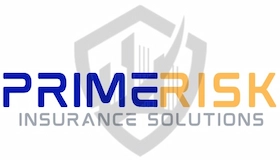Actual Cash Value Actual cash value, commonly referred to as ACV, is an insurance policy that takes into consideration the age and depreciation of the roof. It calculates the amount of money that would be required to replace the roof in its current condition, accounting for depreciation. ACV policies factor in the age of the roof, its expected lifespan, and the extent of damage. This type of policy is typically less expensive than a replacement cost policy, making it an attractive option for many property owners.
Replacement Cost On the other hand, a replacement cost policy covers the cost of completely replacing the roof. It takes into account the current market value of materials and labor required to install a new roof of similar size and quality. Unlike ACV policies, replacement cost policies do not factor in depreciation or the age of the roof. This means that the policy will pay the full cost of replacing the roof without considering any depreciation.
Differences Between ACV and Replacement Cost The primary difference between ACV and replacement cost policies is the amount of money that would be paid out to the property owner. ACV policies consider the age and depreciation of the roof, so the payout amount would be lower than the total cost of replacement. On the other hand, replacement cost policies will pay out the full cost of replacing the roof, without accounting for depreciation or the age of the roof.
Another significant difference between the two policies is the cost. ACV policies are generally less expensive than replacement cost policies. However, it is important to note that while ACV policies may be cheaper in the short term, they may not provide sufficient coverage in the event of a major loss or damage.
Which Policy Is Best for You? Choosing the best policy for your roof will depend on several factors. For instance, if your roof is relatively new and in good condition, an ACV policy may be sufficient to cover any minor damages that may occur. However, if your roof is old or has suffered significant damage, a replacement cost policy may be more appropriate. Replacement cost policies offer better coverage in the event of major damage or loss, but they come at a higher cost.
In conclusion, choosing the right roof settlement option is an important decision for property owners. It is essential to understand the differences between ACV and replacement cost policies and the factors that influence the choice of policy. Ultimately, the best policy will depend on the age and condition of your roof, the extent of damage, and your budget. Be sure to consult with your insurance provider to determine the best option for your property.

